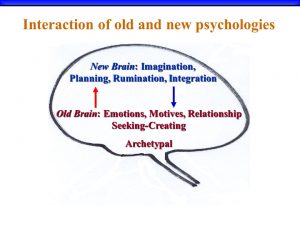Modern therapy involves using knowledge and techniques from cognitive science. That is, what we know about how our thoughts and feelings influence our behaviour and our bodies. and vice versa.
The therapies we use here at GreenWood Mentors are based on scientific evidence. That is, they have been scientifically compared with drug treatments and other treatments. They have been found to do the same job or a better one.
Modern therapy is evidence based. That is, the approaches used have been scientifically tested and often compared against drug treatment and other therapies. They are also based on cognitive science. Cognitive science is a huge body of research about thinking, feelings, the brain and behaviour. Knowing how the brain works helps us develop and test new techniques.
For example, it has been known for many years that when we are depressed our brains work differently. Our thought patterns get skewed as our brains select all the negative memories from its stores. Our thoughts also predict hopeless futures when we are depressed. Because we know this, we can work on the thoughts.
Cognitive Behaviour Therapy (CBT)
The most well known therapy we use is called CBT (cognitive behaviour therapy). This therapy has been compared with drug treatment extensively. It is recommended by NICE (UK National Institute for Clinical Excellence) for the treatment of anxiety (OCD, GAD, phobias, social anxiety), depression, PTSD, pain, chronic fatigue, and other problems.
CBT helps us work on our thoughts and feelings and behaviour. Our therapists work with you to find out how early and more recent experiences have affected your thinking patterns. There may well be recent events which have caused a crisis and prompted you to look for help.
This kind of story of how the problems have developed is one step. We also work on what keeps the problem going, vicious circles which keep repeating themselves and make us feel stuck. The development and the vicious circles together are called a CBT formulation. It will contain clues and pint to ideas about the way out of the situation.
CBT involves becoming aware of thought patterns known as negative automatic thoughts (NATS). This is often done using a diary called a thought record. Once patterns are recognised we can work together to review the thoughts. We can decide whether or not they are realistic and whether they are helpful. We can work on getting new and different perspectives and developing more helpful replacement thoughts. Once you have alternative viewpoints, you will find your feelings and behaviour also change. The organisation in the UK which accredits CBT therapists is the British Association of Behavioural and Cognitive Psychotherapists (BABCP).
You can find out more about CBT here.
Or contact us to find a therapist.
Acceptance and Commitment Therapy (ACT)
Developing psychological flexibility is the aim of ACT work. Psychological flexibility means we can act according to our goals and values no matter how we feel. ACT trains us to get a perspective on our thoughts, feelings, urges, memories and body sensations. We can learn to accept them rather than fighting them or being overwhelmed by them. Mindfulness is a great way to train our minds to take this new perspective.
ACT work focuses on getting clear about our values. What gets us up in the morning, what floats our boat, what gives our life purpose? Perhaps, if we are depressed, what used to float our boat before we were depressed? By getting clear on our values, we can accept how things are right now and then take steps towards what we want. Even when we are struggling against adversity, we can still make choices in line with our values. In this way we can become resilient and strong in our lives.
Instead of battling with anxiety feelings and anxious thoughts, for example, we can learn to stop engaging with them. We can say things like “I notice I am having an anxious thought” whilst continuing towards our goals. In the cartoon above, the guy is spending all his time on fighting the anxiety monster who is trying to pull him into the hole. Because he’s doing this, he has no time or energy to live his life. If he lets go of the rope he can get on with living.
To find out more about ACT therapy, click here
Or contact us to find a therapist.
Compassion Focused Therapy (CFT)
Compassion focused therapy is great for those of us who have learned to hate ourselves and put ourselves and/or others down. It helps us develop self-respect and good self care along with respect for and care for other people.
Using mindfulness training including loving kindness practice, CFT gets us over blocks to self care. Many of us feel that having compassion is self pity or weakness, but this is not true. Each of us deserves respect and love as human beings in the world. And the place to start is with ourselves.
CFT uses our knowledge of evolution to understand how our brains work and how they can get stuck in a fearful, defensive way. CFT helps us to develop a healthy and loving approach to ourselves and other people so that we can be open to the joys in life. CFT also helps us to overcome trauma by teaching us in a profound way that it was not our fault.
Balancing our drives to achieve, to relate to others and to stay safe is the key to mental health and wellbeing. For more information on CFT click here












